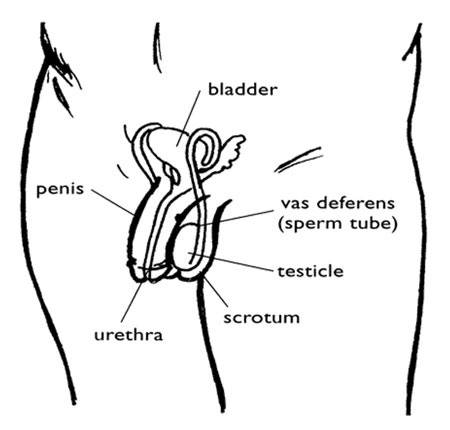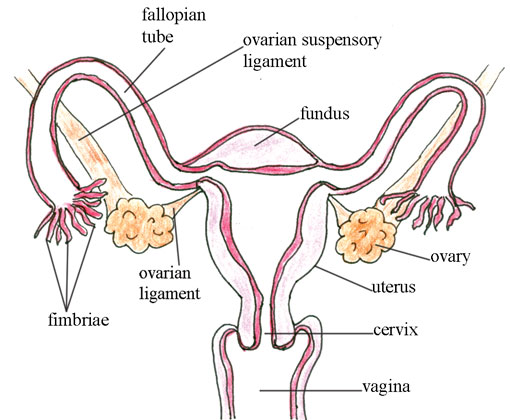Causes of infertility
The causes of infertility are varied and complex. According to studies from around the world, both men and women are affected by infertility: about 40–60% of causes are linked to female factors, and 20–40% are related to male factors.

It is important for you to understand the anatomical, physiological and psychological conditions affecting fertility in women and men, both of whom should normally be able to conceive. Firstly, a man has to have normal functioning reproductive organs (figure above) capable of producing normal sperm in sufficient numbers, and he has to be able to transfer them successfully to the woman's reproductive system through sexual intercourse.
Similarly, the woman's reproductive system should function normally and be able to produce healthy eggs, have normal fallopian tubes and uterus and produce normal cervical mucus. See figure below of the female reproductive organs.

To achieve normal physiological functions and processes, the endocrine (hormone-producing) glands of both the man and woman involved in reproduction must function normally. In addition, psychological and social conditions can influence the timing and frequency of sexual intercourse, which in turn can influence the chance of getting pregnant.
Age is an important factor in both women and men. In many women fertility declines as they age, especially over 35 years of age when the quality of eggs remaining in the ovaries is lower than when the women were younger. In men, sperm motility is reduced as they age, but overall fertility is not affected as much. There are many case reports describing men having children even after the age of 90 years.